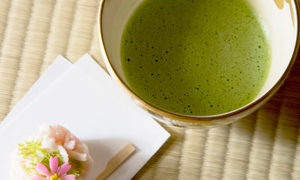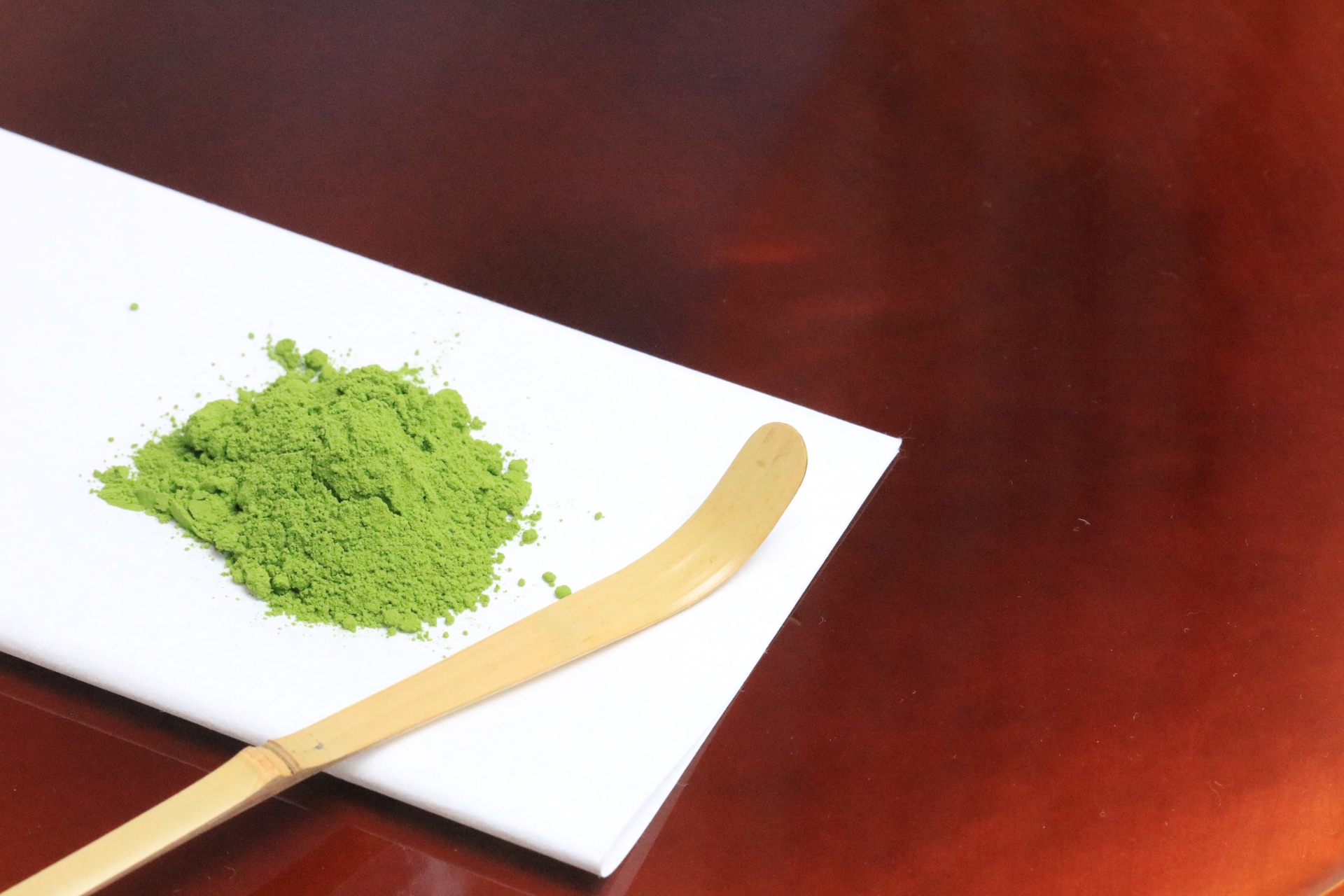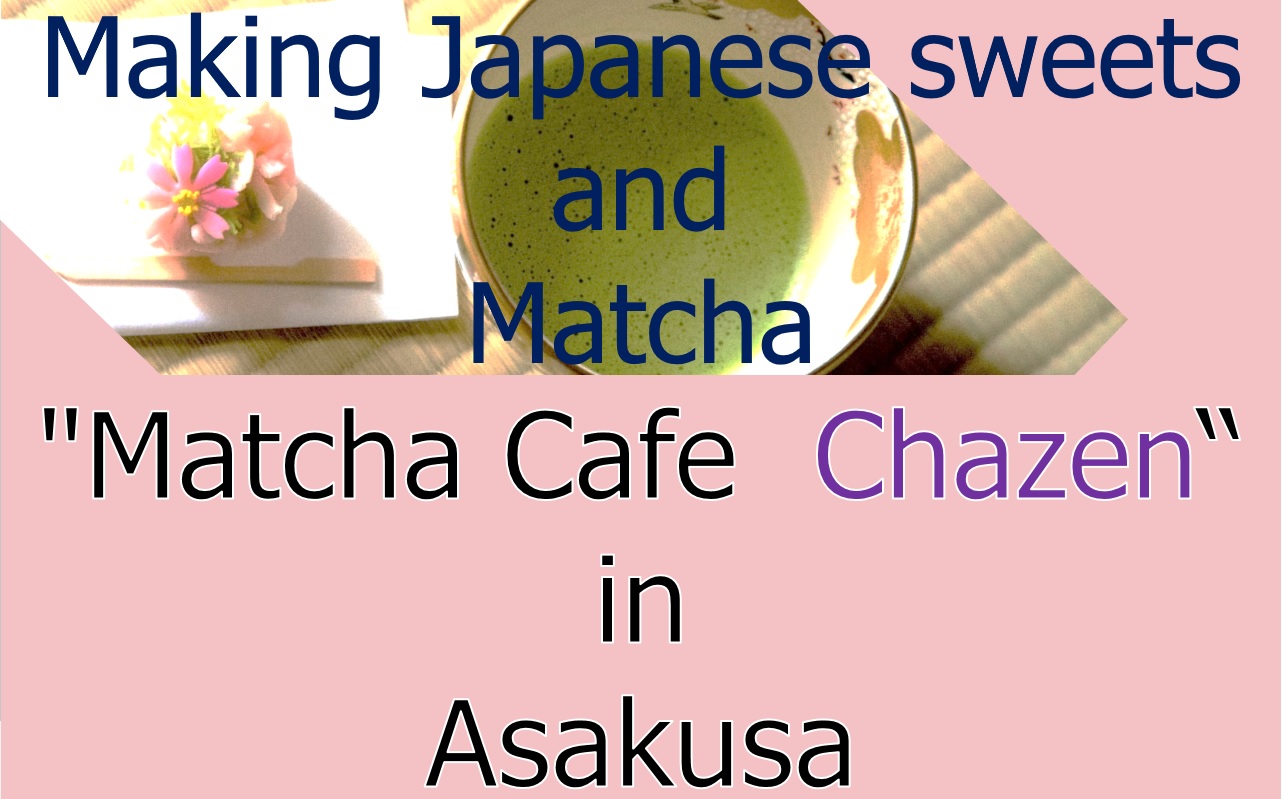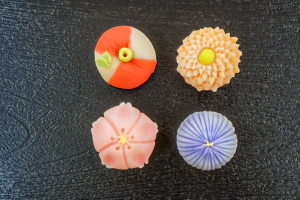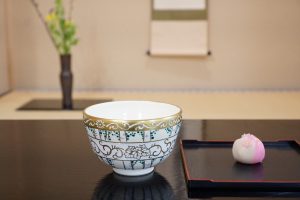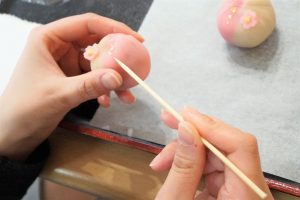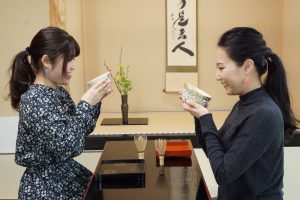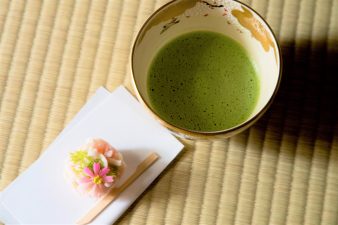I want to know the best Japanese cafes in Tokyo!
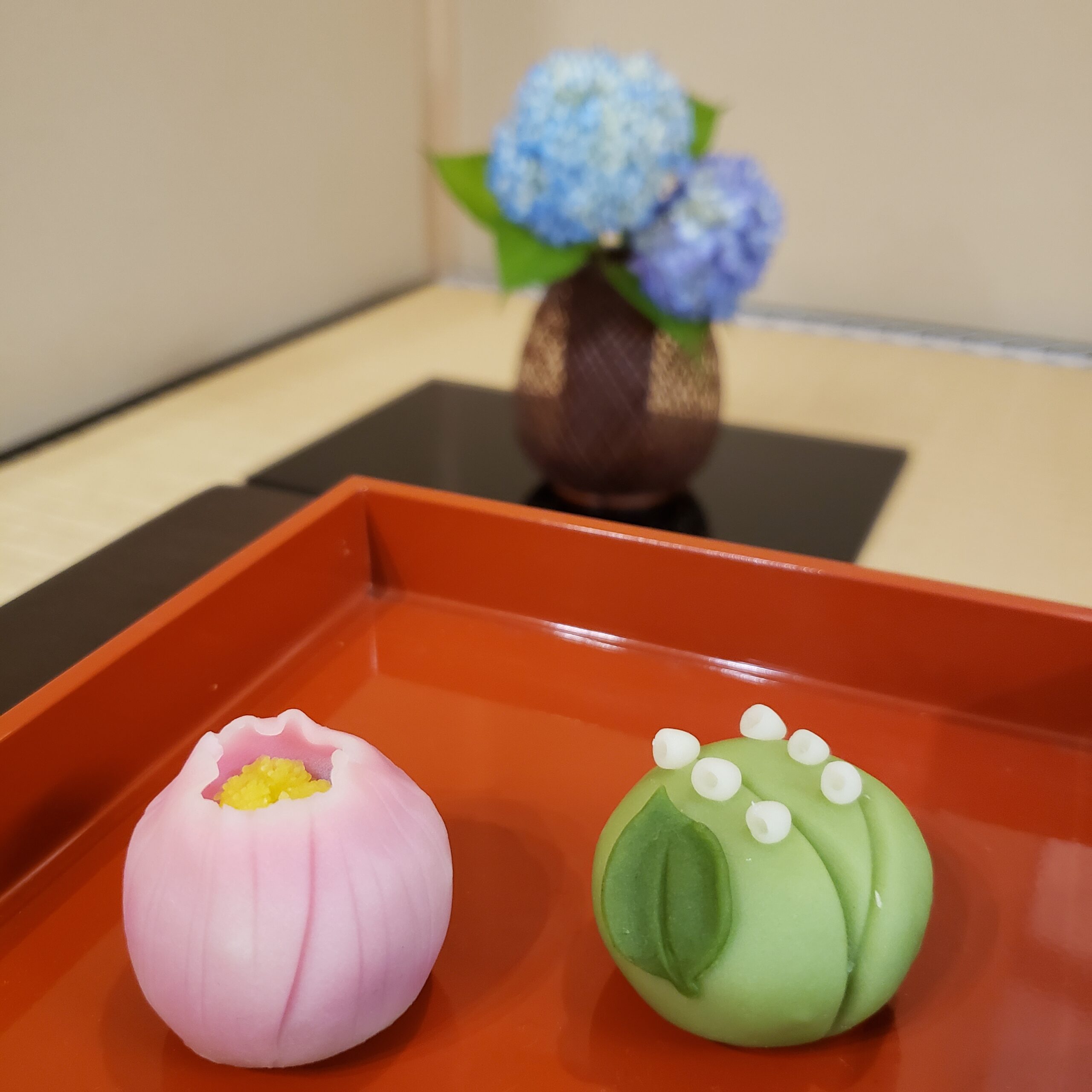
From trendy cafes to interactive cafes!
Japanese cafes are popular for offering a taste of good old Japan. In Tokyo, there are many different types of Japanese cafes, from traditional Japanese houses that have been renovated, to cafes in commercial facilities where you can casually stop by while shopping, to hands-on cafes where you can experience Japanese culture such as tea ceremony and calligraphy. In this article, we will introduce eight of the best Japanese cafes in Tokyo.
Kagurazaka Saryo
Kagurazaka Saryo Honten is an old-fashioned café converted from an old apartment into a machiya-style house. There are several stores in commercial facilities in Tokyo, such as Shibuya, Ikebukuro, and Shinjuku, but the main store is located in a back alley on Kagurazaka-dori, surrounded by a wooden deck, creating a calm atmosphere. On a sunny day, it would be nice to spend some time on the terrace facing the open air. In addition to the saryo parfait (from 1,540 yen including tax), which includes matcha ice cream, matcha jelly, and matcha pudding, and seasonal cakes made with matcha, azuki beans, and soy milk (from 1,265 yen including tax), you can also enjoy meals such as the seasonal obanzai set (3 pieces) (lunch only) (1,320 yen including tax). You can also enjoy a meal at the restaurant.
Address: 5-9 Kagurazaka, Shinjuku-ku, Tokyo
Access: 5 minutes walk from JR Sobu Line Iidabashi Station West Exit, 4 minutes walk from Tokyo Metro Tozai Line Kagurazaka Station Exit 1, 3 minutes walk from Toei Oedo Line Ushigome Kagurazaka Station Exit A3
Closed: Open irregularly
Open hours: Mon-Fri 11:30-23:00, Sat: 11:00-23:00, Sun & holidays: 11:00-22:00
Contact: 03-3266-0880
URL: https://saryo.jp
Matcha Cafe Chazen
Matcha Cafe Chazen is Asakusa's first hands-on Japanese cafe, which was opened by a tea ceremony instructor (professor of Urasenke) to promote the tea culture. The experience of making Japanese sweets (1,500 yen per person) can be done without a reservation, and even if you are new to the tea ceremony, the staff will teach you properly so that anyone can casually enjoy the world of tea. The tea ceremony room, which includes a tsukubai and a nijiriguchi to purify your hands, is very atmospheric and gives you an authentic feeling. You can make your own sweets, make your own matcha, and enjoy the tea and sweets with your own bowl and plate. The tea ceremony is a great way to relax and forget the hustle and bustle of the city while enjoying the hanging scrolls, the scent of incense, and seasonal flowers.
Address: Benkyodo Building 5F, 1-4-7 Asakusa, Taito-ku, Tokyo
Access: 3 minutes walk from Exit 1 of Tokyo Metro Ginza Line, 2 minutes walk from Kaminarimon
Hours of operation: Every Sunday only from 11:00 to 16:00
・Website: https://teaceremony-tokyo.jp
Teahouse Gallery Kosoan
A renovated mansion built at the end of the Taisho era (1912-1926), the teahouse "Kosoan" was built with a gallery. In contrast to the fashionable atmosphere of Jiyugaoka, the store has the appearance of a good old Japanese house. From the tatami room, you can enjoy a view of the beautiful garden. The menu offers a wide variety of Japanese sweets such as Matcha green tea with Japanese sweets (900 yen including tax), Matcha white bean jelly (1,000 yen including tax), and Anmitsu (900 yen including tax). Shaved ice (shiratama Ujikintoki) (900 yen including tax) is also available for summer only.
Address: 1-24-23 Jiyugaoka, Meguro-ku, Tokyo
Access: 5 minute walk from the front exit of Jiyuga Station on the Tokyu Toyoko and Oimachi lines.
Closed: Every Wednesday
Opening hours: 11:00 - 18:30
Contact: 03-3718-4203
・Website: http://kosoan.co.jp/index.html
kitchen confectionery
The wagashi café "Garashi Kurogi" originally operated on the Hongo campus of the University of Tokyo. As of April 2021, it is closed due to the university's admission restrictions, but a new store has been opened in the Japanese house in Yushima where the first store was located. There are two types of dishes: the "Chef's Confectionary Set" (2,800 yen including tax) and the "Sweet Kappo Course" (4,200 yen including tax). The "Chef's Confectionary Set" includes a choice of two sweetmeats from five different types, such as "Warabi Mochi" and "Ozenzai", and comes with a cup of green tea or coffee after the meal. The sweet kappo course includes Japanese sweets and tea as a tsukidashi (appetizer), followed by authentic kappo cuisine such as grilled sesame tofu, sekihan rice, and beef shigure-ni. (The menu is subject to change depending on the season.)
Address: 3-35-1 Yushima, Bunkyo-ku, Tokyo
Access: 1-minute walk from Exit 4 of Yushima Station, Tokyo Metro Chiyoda Line; 4-minute walk from Exit A4 of Ueno Hirokoji Station, Tokyo Metro Ginza Line; 5-minute walk from Okachimachi Station, JR Yamanote Line
Closed: Wednesday
Business hours: 11:00 - 19:00
Contact: 03-5817-8121
Twitter: https://twitter.com/kuriya_kurogi
Tea Garden Zenka Shoin
Chaniwa Shouin is located on the 5th floor of Shibuya Hikarie ShinQs, a commercial complex in Shibuya. You can enjoy freshly brewed tea and sweets such as sponge cake and dorayaki baked in the store's workshop. There are standard sweets such as anmitsu and parfait, but we recommend the Japanese afternoon tea set "Karaku" (from 1,870 yen including tax), which includes a total of eight types of sweets. Some of the sweets are also available at the confectionary store located on the second basement floor of ShinQs. The interior recreates the atmosphere of the original Muromachi store in Kyoto. In the adjoining gallery, art works by artists selected by Shenkashoin are on display.
Address: Shibuya Hikarie ShinQs 5F, 2-21-1, Shibuya, Shibuya-ku, Tokyo
Access: Directly connected to Shibuya Station on the JR Keio Inokashira Line via a passageway on the 2nd floor, directly connected to Shibuya Station on the Tokyo Metro Ginza Line via a passageway on the 1st floor, directly connected to Shibuya Station on the Tokyu Toyoko Line, Denentoshi Line, Tokyo Metro Hanzomon Line, and Fukutoshin Line via exit B5.
Opening hours: 11:00 - 19:00
Contact: 03-6434-1517
Website: https://zen-kashoin.com
Komoraku
Located in a 90-year-old private house in the back streets of Mejiro, the café "Komoraku" is a Japanese style restaurant. In the Japanese-style room on the first floor, you can enjoy sweet and set menus at lunchtime, and a la carte and course meals using ingredients from all over Japan, as well as drinks at night. In the evening, you can enjoy a la carte and course meals using ingredients from all over Japan, as well as sake. The sweet treats include not only standard Japanese sweets such as "Anmitsu" (700 yen including tax), but also luxurious sweets with a mix of Japanese and Western flavors such as "Toasted Bread with Red Bean Paste Butter" (700 yen including tax) and "Rice Flour Pudding Crepe" (1,200 yen including tax). In the Japanese and Western-style rooms on the second floor, workshops and Japanese cultural lessons are held throughout the year, and you can experience tea ceremony, calligraphy, and Japanese dance with a reservation.
Address: 3-21-5 Shimo-Ochiai, Shinjuku-ku, Tokyo
Access: 6-7 minutes walk from Mejiro Station on JR Yamanote Line.
Closed: Monday and Tuesday
Business hours: Weekdays 11:30-20:00, holidays 11:30-20:00 (
Closed: Monday and Tuesday ・Open: 11:30-20:00 on weekdays, 11:30-20:00 on holidays (11:30-17:00 for lunch, 16:00-20:00 for dinner)
Contact: 03-6883-8623
Website: https://www.kokura-bluecampjapan.com
chano-ma Ikebukuro
The Japanese cafe "chano-ma Ikebukuro" is located on the 9th floor of Lumine Ikebukuro. Rice and miso soup are available on request. The rice and miso soup are free to refill. There is also a full menu of sweet dishes. In addition to the table seating, there are also spacious sofa seats that look like beds, making it not only relaxing but also very photogenic.
Address: Lumine Ikebukuro 9F, 1-11-1 Nishi-Ikebukuro, Toshima-ku, Tokyo
Access: Direct connection from JR Ikebukuro Station
Access: Directly connected to JR Ikebukuro Station ・Closed: Same as Lumine Ikebukuro
Opening hours: Lunch 11:00-17:00, Dinner 17:00-22:30.
Contact: 03-5928-3327
Website: https://www.dd-holdings.jp/shops/chanoma/ikebukuro#/
Enjoji Cafe
The "Ennai Cafe" is the result of the owner's desire for customers to enjoy a leisurely cup of tea on the veranda. Sitting on the veranda and watching the seasonal garden scenery spread out in front of you will give you a taste of the extraordinary even in the city. The menu includes hand-brewed "Edgeside Original Blend" (460 yen), "Hojicha Latte" (550 yen), "Matcha Latte" (560 yen), and authentic "Matcha" (650 yen with sweets). The seasonal fruit tart (590 yen) and cake of the day are also recommended to accompany your drink.
Address: 2-5-10 Nishi-Hokima, Adachi-ku, Tokyo
Access: 14 minutes walk from Tobu Skytree Line Takenotsuka Station
Closed: Saturdays, Sundays, and Mondays (other irregular holidays may occur)
Business hours: 11:30 a.m. to 6:00 p.m.
Contact number: 050-5589-7284
・Website: https://shouwanoie.jp/cafe/
We have introduced various types of Japanese cafes, from casual to authentic. If you are looking for a traditional Japanese house café, you can immerse yourself in the nostalgic atmosphere of your grandparents' house. In addition to savoring the atmosphere, it is also a good idea to experience Japanese culture through workshops. If you are tired of the daily life in the city, why not try a Japanese cafe to heal your soul?






